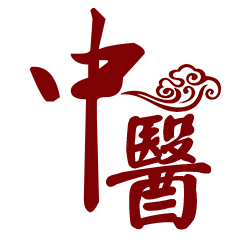The functions of Blood are to nourish and moisten the body and to provide the material foundation for the Mind. In cooperation with the meridians, Blood transports nutrients to all parts of the body. Blood has a moistening function which sets it apart from Qi. For instance, Liver-Blood moistens the eyes, sinews, hair, and skin. It should be noted that Blood is also the important material base for mental activities.
The Basic Questions says, “Blood activity is influenced by the Mind”. According to the TCM principle introduced by Qian Xue-Sen, the information processing by the Brain is facilitated by the chemical reaction of oxygen and hydrogen in the Blood. The human brain accounts for about 2.5% of the human body in volume but needs more than 20% of the body’s blood supply, due to large blood oxygen consumption while processing information. One oxygen atom typically combines with two hydrogen atoms to produce one molecule of water rather than one molecule of hydrogen peroxide. In any time period, if the blood oxygen passes through the “Heart” and combines with information-specific hydrogen, that information is strengthened and supported. Regardless of the initial intensity of the information, this more competitive force to brain energy achieving precedence is determined by the body’s “whole will” (in the Heart).
If blood is sufficient, the activities of the Mind will have sufficient vitality. In contrast, if Blood is deficient or is disturbed by Fire, abnormalities such as vague anxiety, panic, sleeplessness, palpitations, insomnia, dysphoria, trance, and coma, will occur.
Blood also transports turbid Qi, urine, or sweat, which need to be excreted. Blood within the vessels, like the water of rivers, transports nutrition to all parts of the body and collects the metabolized wastes for excretion from the body.
Blood circulation is a complex process, and differs from CWM’s limited anatomical and physiological findings. Although the Heart is the center of the circulatory system, Qi actually governs Blood circulation, and the Lung, Spleen, and Liver are also closely involved. Spleen-Qi keeps Blood within the vessels and prevents it from extravasation. The Lung, which governs Qi, is connected with all vessels or, as stated in TCM, “the Lung faces the vessels.” After generating Pectoral Qi, the Lung distributes nutrients and assists the Heart with Blood circulation. The Liver stores and regulates Blood. It also controls the actions of dredging and dispersing to optimize the smooth circulation of Blood.
The Basic Questions says, “Blood goes to the Liver when the body is asleep. The adequate supply of Blood enables the eyes to see, the hands to hold, the fingers to grasp, and the feet to walk” . The Miraculous Pivot says, “When the Blood is harmonized . . . the sinews are strong enough and the joints are flexible” .
TCM considers: “The Kidney and the Liver have a common origin.” The Kidneys store Essence, and the Liver stores Blood. Liver-Blood is extremely important for women’s menstrual and reproductive functions. The kidneys contribute to Blood production via Kidney-Qi assisting in the transformation of Food-Qi into Blood, and also by the direct-transformation of Kidney-Essence into Blood.

